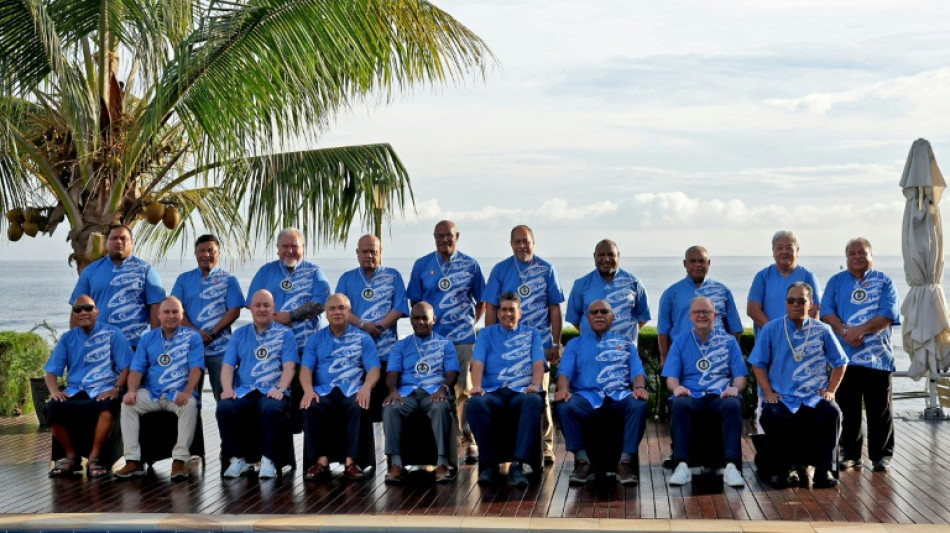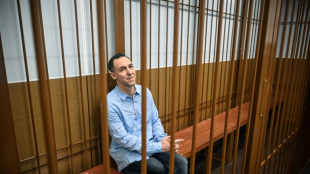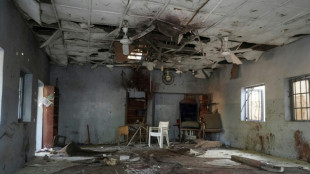
Pacific leaders agree new summit rules after China, Taiwan bans

Pacific Island leaders agreed on Friday to a new framework that would allow nations to join a key regional forum as strategic partners, after accusations that China was influencing regional decision-making.
The 18-member Pacific Islands Forum in the Solomon Islands concluded after leaders met behind closed doors on Friday, with the gathering's key talking point being the "dialogue partners" who were controversially banned from attending this year.
Alongside member states that include key players Australia and New Zealand, the gatherings are typically attended by dozens more countries as observers or partners.
However, the Solomon Islands barred most of those partners from attending this year, sparking accusations that Honiara worked at Beijing's behest to exclude long-time participant Taiwan.
The move prompted concern among fellow Pacific nations, three of whom -- Marshall Islands, Palau and Tuvalu -- still recognise Taipei.
China counts the Solomon Islands among its closest partners and backers in the South Pacific, and they signed a secretive security pact in 2022.
The dialogue partners issue required lengthy debate during Friday's closed-door meeting, officials who were party to the leader discussions told AFP.
The official forum communique described the debate as a "robust exchange". It said leaders agreed to a new framework in which states would apply to attend future summits as strategic partners.
"It ensures that partnerships are structured, balanced, and accountable in relation to collective, regional political decision-making processes," the communique said.
New Zealand's top diplomat Winston Peters told AFP last month it was "obvious" that outside forces were meddling in the summit.
Peters, Australian Foreign Minister Penny Wong and other officials warned that banning dialogue partners could affect external aid to the Pacific.
Palau President Surangel Whipps Jr also told AFP on Wednesday there had "absolutely" been outside meddling in the summit.
"We should engage and be inclusive and have all partners here," he said.
"We shouldn't say 'this partner should be allowed and that partner shouldn't be' -- everybody should be here, because in solving our challenges, we need everybody," he said.
Palau will host next year's forum.
The communique said potential strategic partners will need to apply to be admitted to the forum, and fulfil criteria that include being a sovereign country, a political community (such as the European Union), or an intergovernmental organisation.
Discussions were less fraught regarding climate change and security in the Pacific.
Leaders agreed all countries must "take individual and collective action to prevent near-term warming by addressing short-lived climate pollutants, in particular, methane emissions", the communique said.
They also endorsed an Australian bid to host the COP31 UN climate talks next year, calling it a joint bid between Australia and the Pacific.
The leaders also called for a united response to transnational crime, in particular drug smuggling through the Pacific.
C.Pawlowski--GL

 London
London

 Manchester
Manchester
 Glasgow
Glasgow
 Dublin
Dublin
 Belfast
Belfast
 Washington
Washington
 Denver
Denver
 Atlanta
Atlanta
 Dallas
Dallas
 Houston Texas
Houston Texas
 New Orleans
New Orleans
 El Paso
El Paso
 Phoenix
Phoenix
 Los Angeles
Los Angeles



